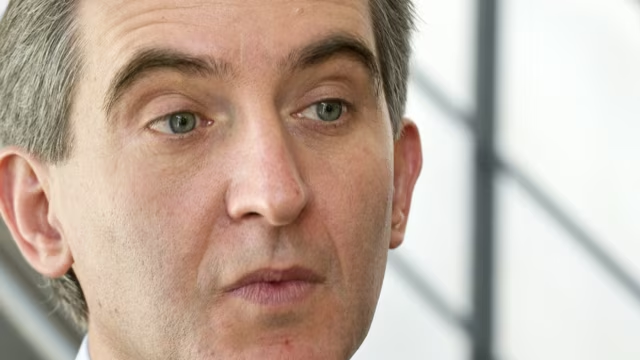Radio Europa Libera: The Legacy Of RFE’s Romanian Broadcasts

PRAGUE, CZECH REPUBLIC — Earlier this week, Moldovan Foreign Minister Iurie Leanca stoppped by RFE headquarters, where he discussed Moldovan democratization, the conflict with Transdniester, and the potential for further integration with Europe. His visit was both informative and topically appropriate, as this year marks the 60th anniversary not only of the Czechoslovak Service, but also of its Romanian counterpart, Radio Europa Libera.
Now succeeded by the Moldovan Service, official broadcasts from Radio Europa Libera into Romania were halted in 2008. In its 57 year existence, however, Europa Libera’s Romanian iteration made a lasting impact on the society into which it broadcasted, and on a number of its most prominent citizens.
During his visit, Minister Leanca spoke of his personal relationship with RFE growing up. Said Leanca, “I still remember when I was a child in the 70’s and [my father] was listening to your radio. And it was a really a source of inspiration, of unbiased information, and a source of hope. And by the way, today, we now all live in completely different conditions, but Radio Free Europe is playing a very important role.”
Also impacted was Vladimir Tismaneanu, a noted Romanian/American political scientist, professor at the University of Maryland, College Park, and President of the Scientific Council of The Institute for the Investigation of Communist Crimes and the Memory of the Romanian Exile (IICCMER). Tismaneanu recently drafted a statement in honor of the anniversary, speaking of the catalyzing effect that RFE’s Romanian broadcasts had on him growing up.
For totalitarianism, truth is subversive.
Wrote Tismaneanu: “In a Bucharest pervaded by official lies, with newspapers dominated by sycophantic poems and hagiographic articles celebrating the ‘victories of socialism’ and the ‘triumphant march of Marxism-Leninism,’ not to speak of the infinite genius of the general secretary (first Gheoghiu-Dej, then Ceausescu), Radio Free Europe was indeed the source of our refusal to despair.”
Tismaneanu specifically praised broadcasts by former director Noel Bernard, calling his editorials “superbly informed and remarkably balanced.” In the statement, he also looks back on the particularly virulent brand of opposition that Radio Europa Libera faced in Romania at the hands of the totalitarian government.
“For totalitarianism, truth is subversive. The regime reacted accordingly, unleashing sordid, slanderous campaigns against RFE’s most active editors. An attempt against Monica Lovinescu’s life was hatched. Directors Noel Bernard and Vlad Georgescu most likely lost their lives as a result of Securitate-planned criminal plots.”
Nevertheless, despite the regime’s efforts, Radio Europa Libera endured, even after the fall of communism. Today, the Moldovan Service carries on the legacy, serving as the largest international radio broadcaster in the country.
To read the full text of Prof. Tismaneanu’s statement, click here. Visit RFE’s Moldovan Service web page here.
